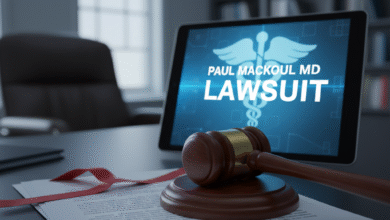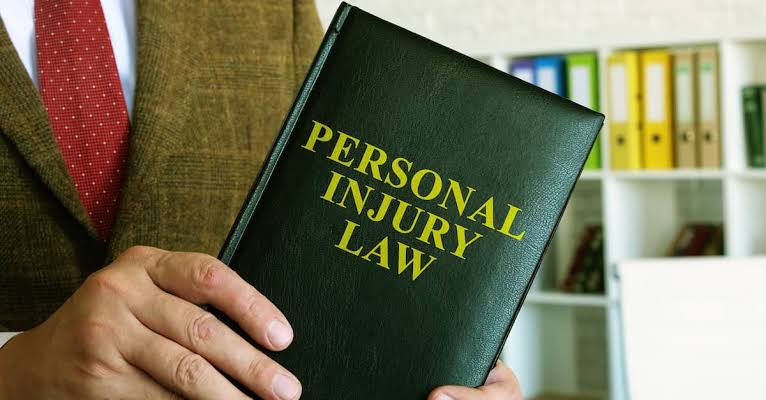Winning Your Negligence Claim The Ultimate Guide to Compensation Payouts

Negligence claims can often seem like a labyrinth for those who are unfamiliar with the legal landscape. Whether you’re a legal professional, an injury victim, or simply an interested member of the general public, understanding the intricacies of negligence claims and compensation payouts is crucial. This guide aims to demystify the process, offering a comprehensive overview enriched with relevant examples and practical tips.
What is Negligence?
Negligence occurs when an individual or entity fails to exercise reasonable care, resulting in harm or injury to another person. In legal terms, negligence must meet specific criteria to form a valid claim. It involves duty of care, breach of that duty, causation, and resulting damages. Understanding these elements can make it easier to identify and pursue a negligence claim.
Why Compensation is Important
Compensation serves as a means to restore victims to their original state before the negligence occurred. It’s not just about the money; it’s about acknowledging the wrong and providing the means to recover. Compensation can cover various aspects such as medical expenses, lost wages, and emotional distress, making it a lifeline for many victims.
Types of Negligence Claims
Negligence claims come in various forms, each with its unique characteristics. Common types include medical malpractice, workplace accidents, and public liability claims. Understanding these different categories can help you better identify the type of claim you may be dealing with.
Medical Malpractice
Medical malpractice involves negligence by healthcare professionals. It could be due to misdiagnosis, surgical errors, or improper treatment. These claims often require expert testimony to establish the standard of care that was breached.
Workplace Accidents
Workplace accidents are common and can range from minor injuries to severe disabilities. Employers have a duty to provide a safe working environment, and failure to do so can result in a negligence claim.
Public Liability Claims
These claims involve injuries sustained in public places like parks, shopping centers, or even on the street. Property owners must ensure their premises are safe for public use, and failure to do so can lead to a negligence claim.
How to File a Negligence Claim
Filing a negligence claim involves several steps. First, gather all necessary evidence, including medical reports, witness statements, and any other relevant documentation. Next, consult with a legal professional to evaluate the strength of your case. Once you have a solid foundation, you can proceed to file a formal complaint.
The Role of Evidence in Negligence Claims
Evidence plays a crucial role in proving negligence. Without concrete evidence, your claim is unlikely to succeed. Ensure you have all relevant documents, photographs, and witness statements to support your case. The more robust your evidence, the stronger your claim will be.
Calculating Compensation Payouts
Calculating compensation payouts involves multiple factors. These include the severity of the injury, medical expenses, lost wages, and any emotional distress caused. Legal professionals often use specific formulas to arrive at a fair compensation amount.
Severity of Injury
The severity of the injury is perhaps the most significant factor in determining compensation. More severe injuries generally result in higher payouts. This includes both physical and psychological injuries.
Medical Expenses
Medical expenses can quickly add up, making them a crucial component of compensation. This includes not just immediate medical costs but also long-term care and rehabilitation expenses.
Lost Wages
Lost wages are another critical factor. If the injury has resulted in the inability to work, either temporarily or permanently, this must be factored into the compensation amount.
Common Misconceptions About Negligence Claims
There are several misconceptions about negligence claims that can deter victims from pursuing their rightful compensation. One common myth is that negligence claims are always lengthy and complicated. While they can be complex, having the right legal support can simplify the process.
The Importance of Legal Representation
Having a legal professional by your side can make a significant difference in the outcome of your claim. Legal experts have the knowledge and experience to navigate the complexities of negligence claims, ensuring you get the compensation you deserve.
Real-Life Examples of Compensation Payouts
Understanding real-life examples can provide valuable insights into what to expect. view our list of compensation payouts.
Here are a few examples of compensation payouts in negligence claims:
- Case Study 1
A woman received $500,000 for a medical malpractice claim involving a misdiagnosed condition that led to severe complications. The compensation covered her medical expenses, lost wages, and emotional distress.
- Case Study 2
In a workplace accident, an employee received $300,000 after sustaining a permanent disability due to unsafe working conditions. The payout included medical expenses, rehabilitation costs, and future lost wages.
- Case Study 3
A man received $150,000 for injuries sustained in a public place due to inadequate safety measures. The compensation covered his medical expenses and lost wages during his recovery period.
Navigating the Legal Landscape
Navigating the legal landscape of negligence claims can be daunting, but understanding the basics can make it more manageable. Familiarize yourself with common legal terms and procedures to better understand your claim’s progress.
Tips for a Successful Negligence Claim
Here are some practical tips to increase the chances of a successful negligence claim:
- Document Everything
Keep detailed records of all events, communications, and expenses related to your injury. This documentation will serve as crucial evidence in your claim.
- Seek Medical Attention Immediately
Don’t delay seeking medical attention. Immediate medical reports can serve as strong evidence of the injury and its severity.
- Consult a Legal Professional
Consulting a legal professional can provide you with valuable insights and increase your chances of a successful claim. They can guide you through the process and ensure you meet all legal requirements.
Conclusion
Negligence claims are essential for holding parties accountable and providing victims with the means to recover. Understanding the intricacies of filing a claim and calculating compensation can significantly impact the outcome. Whether you’re a legal professional, an injury victim, or someone interested in the topic, this guide offers valuable insights to help you navigate the complexities of negligence claims.
If you need further assistance, don’t hesitate to reach out to a legal expert who can provide personalized guidance based on your specific circumstances. By being informed and prepared, you can take the necessary steps to secure the compensation you deserve.



